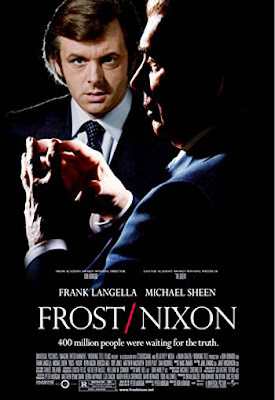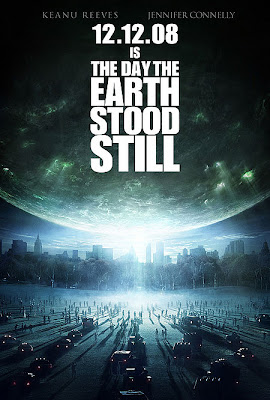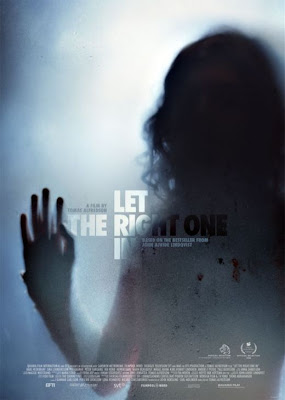 Pinned Down
Pinned DownEver since this film managed to win the coveted Golden Lion at the Venice Film Festival, there has been a lot of talk surrounding it. In fact, by this point, even to those who haven't yet seen the film know about the considerable amount of Oscar buzz for the film, particularly its star Mickey Rourke. It's a very good effort and will certainly do its greatest job to pull you in emotionally. Some are calling it the year's absolute best. I don't know if I completely agree with that statement, but I would certainly say that this film is one of the year's great accomplishments.
The story sets up a very familiar premise. Randy "The Ram" (Rourke) was a star professional wrestler in his youth, but fast forward to today, and he is a washed-up hasbeen trying desperately to make ends meet. He participates in second class venues here and there as he uses his once glorious name to attract whatever money he can grab, which also fuels his steroid use. Randy also finds a connection with a stripper (Marisa Tomei) that he attempts to seek a relationship with and is also trying to reconnect with his estranged daughter (Evan Rachel Wood). All of this leading up to what could be his final battle in the ring.
It is certainly true that Rourke is the one performer that this film is built around, and he does a fantastic job. The reason why this role resonates so much is because the character is very much like himself and his own career. He provides a great emotional ride for us, and his character always feels real. Rourke knows when it's right to be sentimental, when to be dramatic, and when to be just be himself at all the right times. I would personally say that Sean Penn still has my vote for Best Actor this year, but Rourke comes at a very close second for me.
The rest of the cast is fine, but because Rourke knocks his role out of the park, the others just run around in the infield. Tomei gives a very intriguing performance here, and while sometimes it seems piled on, one can definitely see moments when she really gives a great personality to her character, and soon every little emotion can be felt. Even though Wood's part is acted very well, her character unfortunately feels belittled by her role as only necessary to Randy's amending process in his life.
Darren Aronofsky does seem like a strange person to direct this movie, as he has generally tackled on more fantastic themes with movies like Requiem for a Dream and The Fountain. However, Aronofsky has always been attracted to human character studies, and that is exactly what he mines here. It's a tricky task to make this film emotional enough to draw in those who don't prefer the wrestling scenes, but also make sure the promises of the title fulfill the basic testosterone needs of others. Sometimes it feels that like some of the wrestling scenes over indulge on that instinct, seeming unnecessarily violent. Still, Aronofsky can make up for it with other scenes, some which are less sappy than others but work even better.
The one thing that is keeping this movie from becoming great to me would have to be the story. Robert Sigel's script plays by the numbers, and one can see every turn the movie is about to make. Yes, I understand the movie is trying to be more than just an over the hill athlete's story seeking to reclaim fame. I believe that the deeper meanings to the film are still elements that have been told before. His sense of age, his frustration with his own love life, his strained relationship with his daughter are not really connected to the athletic theme, but they all convey the same reveals that have been seen before. The story offers nothing new. However, I would say the very last scene of the film is shot and written perfectly, and immediately followed by Bruce Springsteen's hauntingly beautiful song, almost all else is forgiven.
This is a very good movie, but I don't want to oversell it into something that's great. Because you know where this story is going at all times, there's little room for complete shock and amazement. Though Aronofsky and his company try their best to make up for that, especially with the commanding performance from Mickey Rourke. I don't know if the movie is going to take a real body slam to the Oscars, but Rourke certainly deserves all the recognition he gets. ***1/2 / ****; GRADE: B+
 Lost in Translation
Lost in TranslationThroughout this film, one cannot help but ask this question: can one good performance make up for an entire movie that you didn't like very much? The answer to this question ultimately depends on how the rest of the movie fared. Basically, that means was there anything else besides this one good performance in the movie that you can take solace in? I found myself asking this question for nearly every scene of this movie, which boasts one fine performance, and several others that are good, but ultimately doesn't fulfill the need for a recommendation.
The film's plot, which is based off of the best-seller by Bernhard Schlink, is really three different stories all laid out into one narrative. The first takes place in 1958, where fifteen year old Michael Berg (David Kross) begins a lusty affair with a thirtysomething ticket taker, Hanna (Kate Winslet). The film's title refers to Hanna's insistence that Michael read to her from an assortment of books, which soon becomes their foreplay before their really hot sex scenes. Hanna leaves when she receives a promotion and their summer affair ends.
The second story fast forwards eight years later when Michael is a law student and is sitting in at a prolific case where Nazi war criminals are being tried and one of them just happens to be Hanna. This is where the film offers up a court room drama that dissects moralities before the third story emerges that sees the struggling lives between Hanna in jail and an older Micheal (Ralph Fiennes) on the outside.
Each of these stories have enough to fill their own plots for feature films, but as laid out, it makes the movie feel bloated and, even at just over two hours, long. David Hare's script only seems to address the surface level of every conversation, and the deeper meanings of what these characters are trying to say is never felt. Some of that also seems to come from the fact that the book was written in German that was translated to English, and there are many times where the dialogue feels like English is not written so complexly here, as not to either confuse the German actors or that something isn't retained from the original language.
Hare also collaborates again with Stephen Daldry, six years after their critical success The Hours. Daldry is a great name in the world of theatre, and he probably has great credentials there. Often times, the movie feels like a stage play, and I actually think that would have been better. On screen, Daldry's direction comes across as bloated and sluggish, and every scene has to retain a theatrical sense. The Reader could have become a great play, but its steps don't really work as a film. While Daldry can offer a surprise here and there with something that is incredibly film like, he then can use Nico Muhly's score which comes from the Philip Glass book of overbearingness.
Having said all that, it is Winslet who is the redeeming factor in the film. It seems like it takes a little while for her to become comfortable with the character, but she soon slips into in neatly and she is marvelous. Winslet knows how a simple look can convey so much, and she accomplishes it greatly here. In actuality, this performance is more so leading, but it can be argued supporting, as what often happens when an actor is looking to get nominated for two acting Oscars in one year. Kross is okay, but I don't think English is the right language for him, and while Fiennes is good in anything he does, he comes in too late and feels unnecessary a bit for the story.
I wish that Kate Winslet was able to make up for the rest of the movie because her performance is really great. She's always been a fantastic actress, and she shows it once again here. However, the other faults of the movie are too large to ignore. If one day you're channel searching and you come across this film, you'll certainly see Winslet at the top of her game. Once she's gone, however, you won't need to keep your eye on that screen any longer. **1/2 / ****; GRADE: C+
















